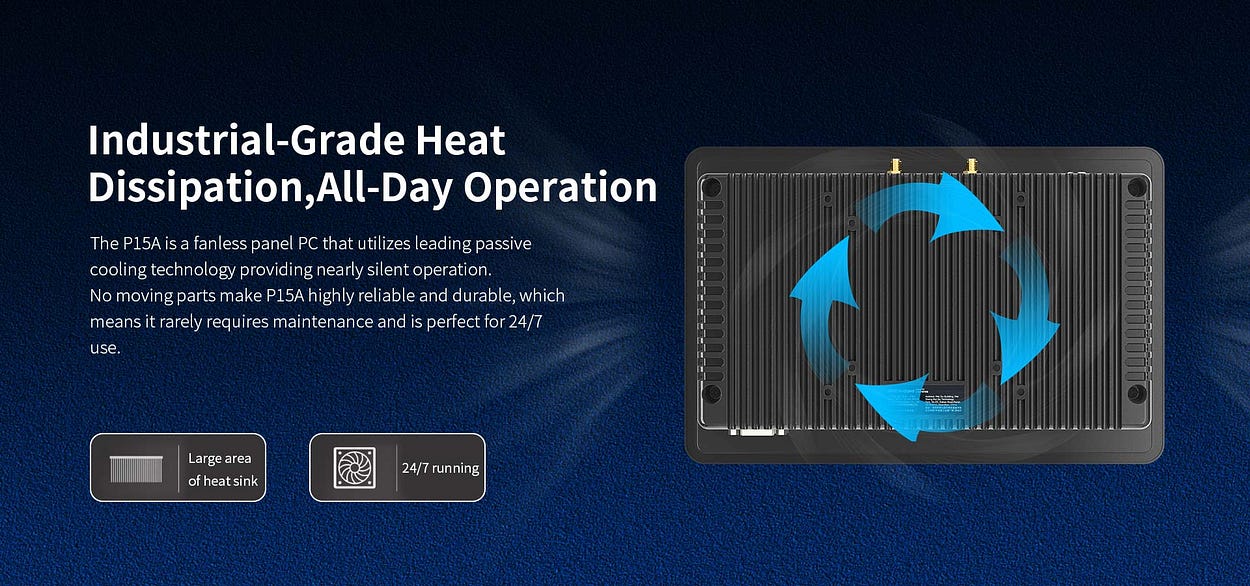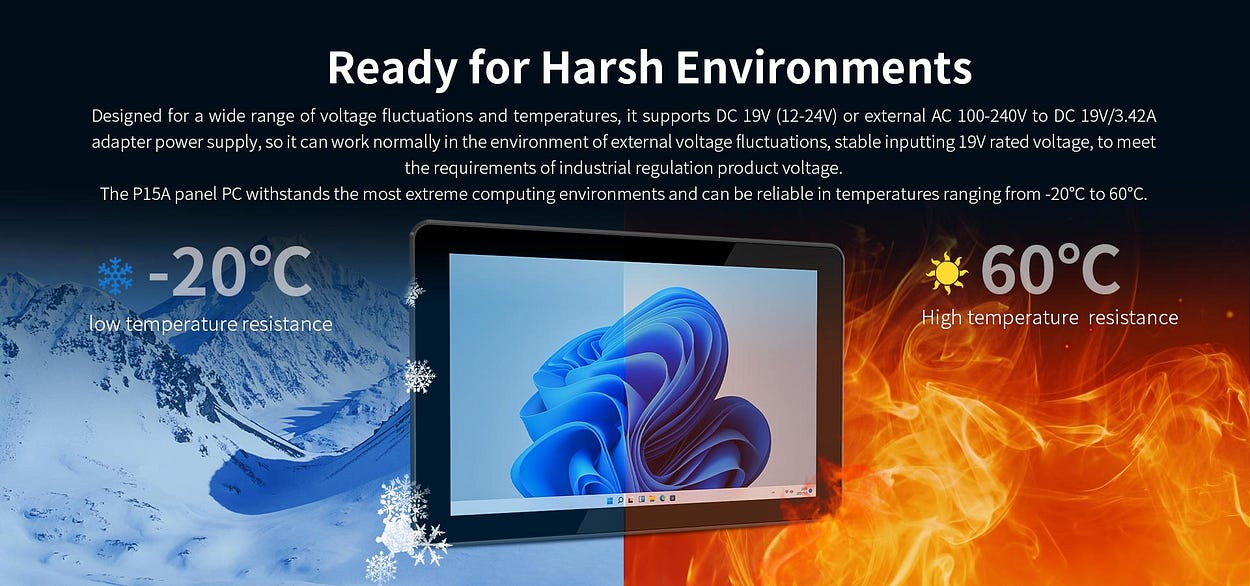
Industrial PC vs. Standard PC: Understanding the Distinctions
In the realm of computing, the distinction between Industrial PCs and Standard PCs lies not only in their design and build but also in their intended applications and resilience. Let’s delve into the key differences that set these two categories apart, shedding light on the unique features that make Industrial PCs stand out in demanding environments.
Form and Function: The Aesthetic and Structural Variance
At first glance, the physical appearance of Industrial PCs and Standard PCs might not reveal substantial differences. However, a closer inspection reveals that Industrial PCs are engineered with a focus on durability and resilience. These rugged machines are built to withstand harsh industrial environments, featuring robust enclosures that shield them from dust, moisture, vibrations, and temperature extremes. In contrast, Standard PCs are designed for typical office or home settings, where environmental challenges are significantly milder.
The Rugged Edge: Why Industrial PCs Excel in Tough Environments
The term “industrial” in Industrial PCs emphasizes their ability to operate reliably in challenging conditions. Industrial PCs are rugged machines crafted to endure the rigors of manufacturing floors, factory settings, and outdoor environments. The ruggedness extends beyond physical durability to encompass resistance to electromagnetic interference (EMI), ensuring stable operation even in environments with high electrical noise. This robust design makes Industrial PCs the go-to choice for applications where standard PCs would falter.
Tailored for Tough Tasks: Industrial PC Tablet’s Unique Features
When it comes to Industrial PC Tablets, the distinctions become even more pronounced. These specialized devices combine the flexibility of a tablet with the ruggedness of an Industrial PC, making them ideal for applications that demand mobility and durability. Industrial PC Tablets are equipped with reinforced exteriors, touchscreens that can be operated with gloves, and sealed casings to protect against dust and water ingress. These features make Industrial PC Tablets versatile tools for fieldwork, inventory management, and other applications where standard tablets might struggle.
Performance Under Pressure: Industrial PCs’ Computing Prowess
Another key difference lies in the performance capabilities of Industrial PCs. Industrial PCs are engineered to handle complex processes and computations required in industrial automation, control systems, and data-intensive applications. These machines boast powerful processors, ample memory, and the ability to support specialized peripherals and interfaces crucial for industrial tasks. In contrast, Standard PCs, while capable for general computing needs, may not have the processing power or durability required for demanding industrial applications.
The Customization Advantage: Industrial PCs Adapt to Industry-Specific Needs
Industrial PCs are renowned for their customization options, allowing manufacturers to tailor these machines to the specific needs of their industry. Whether it’s integrating specialized I/O ports, adding expansion slots, or accommodating unique form factors, Industrial PCs provide a level of flexibility that standard PCs cannot match. This adaptability is crucial in industrial settings where varied applications demand a bespoke approach to computing solutions.
Reliability and Longevity: Industrial PCs’ Endurance
Reliability is a cornerstone of Industrial PCs. These machines are designed for 24/7 operation in industrial environments, where downtime can have significant consequences. Industrial PCs undergo rigorous testing to ensure their reliability and longevity, often featuring components with extended lifecycle support. Standard PCs, while reliable for typical office use, may not withstand the constant demands and harsh conditions present in industrial settings.

Industrial PC Tablets in the Field: Where Mobility Meets Ruggedness
Industrial PC Tablets represent the convergence of mobility and rugged computing. These devices, equipped with features like sunlight-readable displays and hot-swappable batteries, cater to industries where workers need to stay connected while on the move. Whether used in logistics, field service, or manufacturing, Industrial PC Tablets bridge the gap between traditional industrial computing and the convenience of portable devices.
Future-Ready Innovations: Industrial PCs Evolving with Industry 4.0
As industries embrace the era of Industry 4.0, Industrial PCs are evolving to meet the demands of smart manufacturing and automation. The integration of Industrial PCs with advanced technologies such as the Internet of Things (IoT) and edge computing positions them as key players in the digital transformation of industrial processes. Standard PCs, designed for conventional computing tasks, may find it challenging to keep pace with the evolving requirements of Industry 4.0 applications.
In essence, the choice between Industrial PCs and Standard PCs boils down to the specific requirements of the intended application. Standard PCs excel in typical office or home environments, offering cost-effective solutions for general computing needs. On the other hand, Industrial PCs, with their rugged design, customization options, and resilience, are indispensable in industrial settings where reliability, durability, and specialized features are paramount. Industrial PC Tablets, combining mobility with ruggedness, represent a cutting-edge solution for industries embracing the dynamic demands of the modern workplace.